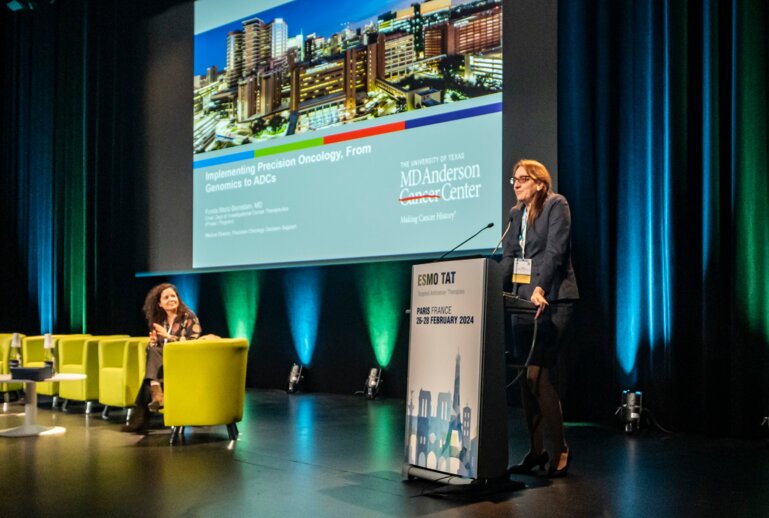
The growing role of AI in breast cancer
The rapidly increasing integration of AI into many aspects of breast cancer management calls for urgent definition of expected levels of evidence and bespoke regulatory and reimbursement processes

The rapidly increasing integration of AI into many aspects of breast cancer management calls for urgent definition of expected levels of evidence and bespoke regulatory and reimbursement processes

Clinical trials have an impact on the environment, and novel approaches may help researchers reshape their activities toward a greater sustainability

Universal health coverage in oncology is still not a reality, as a recent report shows

Personalised proteogenomics has the power to transform the identification, staging and management of NSCLC in never smokers

Despite recent progress, lung cancer remains deadly and difficult to treat — and preventable, to a much greater extent with the right actions to improve the quality of the air we breathe

ESMO is sustaining its efforts to give rare cancers a more prominent place in oncology

Innovative models and increased cross-border collaborations can further support the implementation of rare cancer reference centres to expedite diagnosis and improve treatment

A study proposes a model that is able to learn broad aspects of cancer–immune interactions from early phase trial data

The 2024 TAT Honorary Awardee Prof. Funda Meric-Bernstam discusses progress made and how to overcome current obstacles in the field

ESMO is advocating for secondary and tertiary care levels to be included into international agreements and WHO’s documents to respond to pandemics
This site uses cookies. Some of these cookies are essential, while others help us improve your experience by providing insights into how the site is being used.
For more detailed information on the cookies we use, please check our Privacy Policy.
Necessary cookies enable core functionality. The website cannot function properly without these cookies, and you can only disable them by changing your browser preferences.